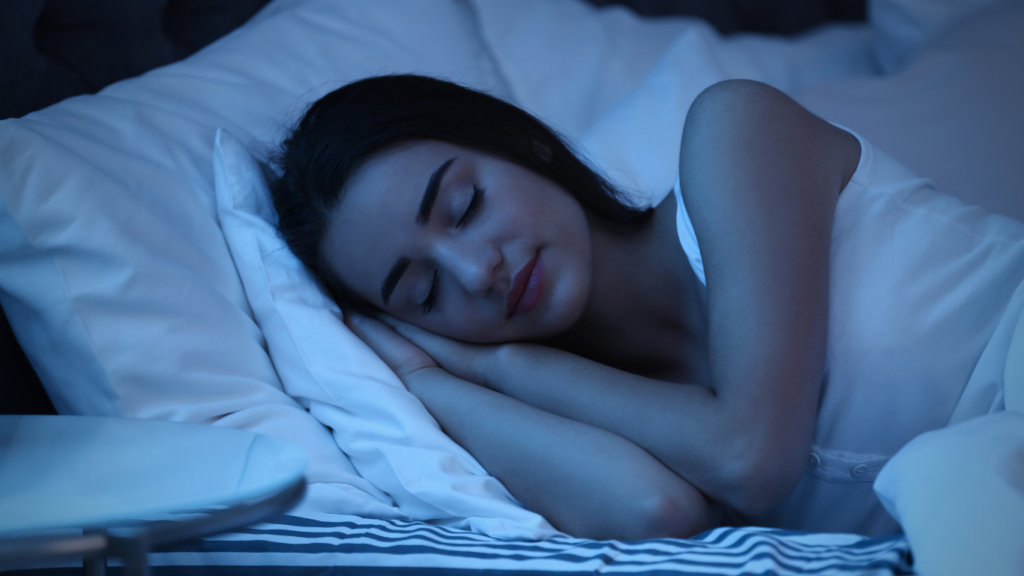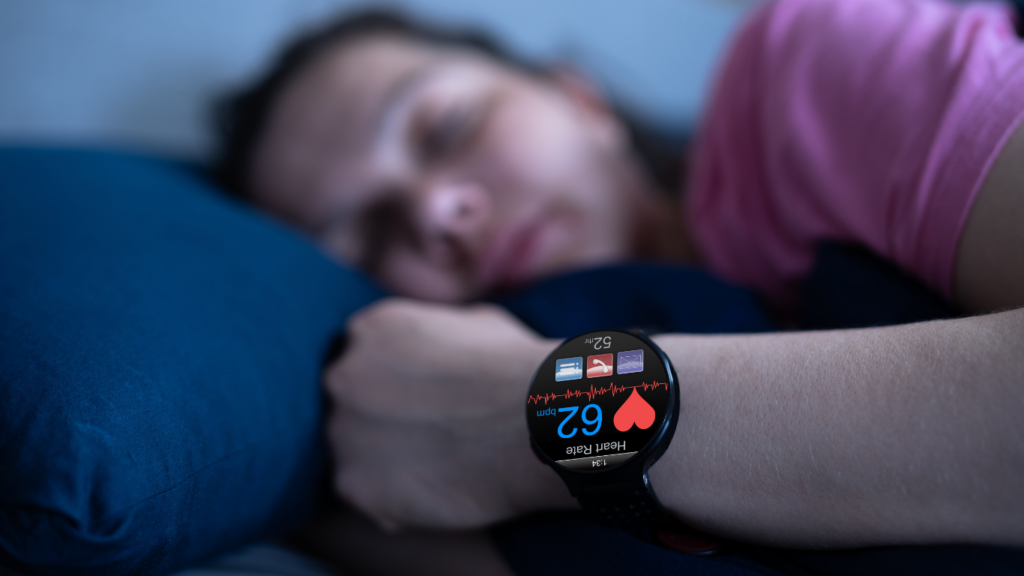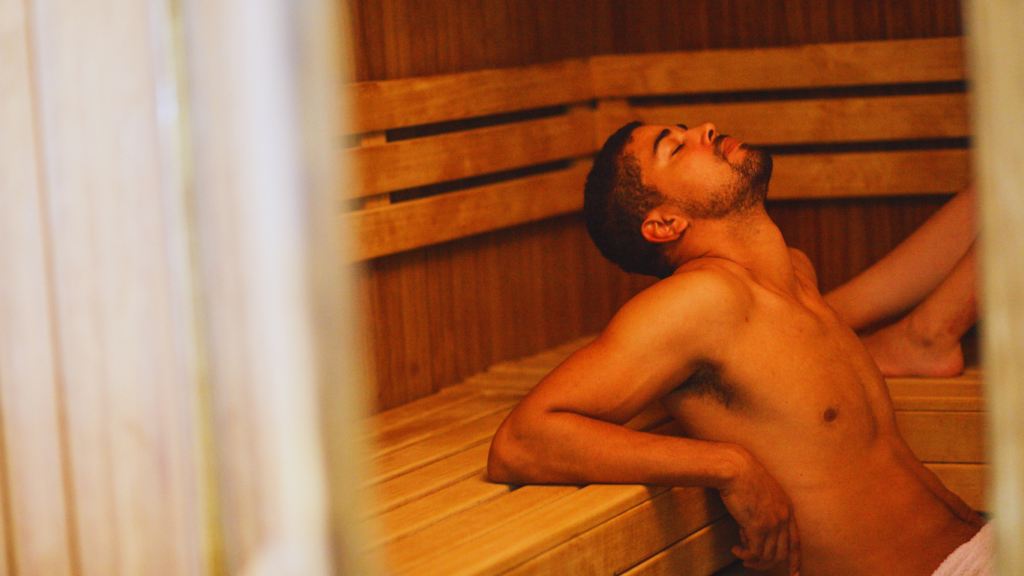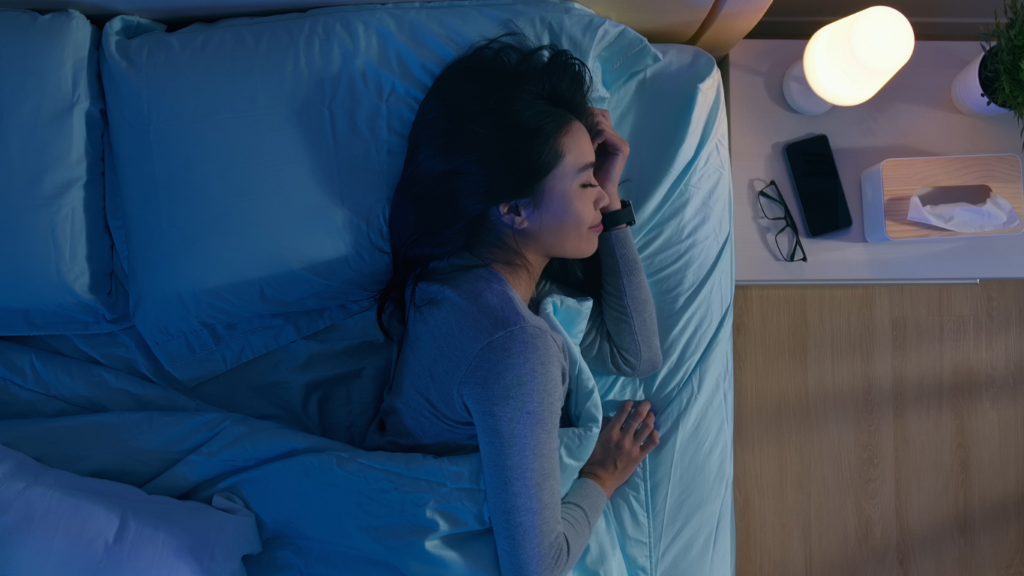Sleep isn’t just rest; it’s the foundation of our health and productivity. Yet, in our fast-paced world, quality sleep often feels out of reach. That’s where biohacking comes in—using science, technology, and simple lifestyle tweaks to optimize how we rest and recharge.
In 2025, biohacking sleep has gone beyond blackout curtains and white noise machines. From advanced sleep trackers to personalized routines, there are cutting-edge tools and strategies that can transform the way we approach rest. I’ve explored the latest trends and tips to help you unlock deeper, more restorative sleep. Let’s dive into the future of sleeping smarter.
What Is Biohacking Sleep?
Biohacking sleep involves using:
- science
- technology
- tailored strategies
to optimize the quality and duration of sleep. It extends beyond basic sleep hygiene by integrating data-driven approaches and personalized tools to unlock deeper rest and improved recovery.
In 2025, biohacking sleep incorporates wearable devices, AI-powered sleep apps, and environmental adjustments for tailored sleep solutions. These methods help identify individual sleep patterns, track disruptions, and provide actionable insights for better rest. For example, advanced sleep trackers monitor heart rate variability and oxygen levels to determine sleep efficiency.
Beyond technology, biohacking sleep also emphasizes lifestyle modifications. Customized routines, such as timing light exposure, optimizing circadian rhythms, and leveraging nutrients like magnesium, play a crucial role. For instance, light-therapy devices simulate sunrise to regulate melatonin production naturally.
The goal of biohacking sleep remains consistent: maximizing recovery, focus, and overall health by aligning sleep strategies with individual needs.
Importance Of Optimized Sleep
Optimizing sleep plays a critical role in unlocking the full potential of physical and mental health. Quality sleep forms the foundation for peak performance and recovery.
Impact On Overall Health
Sufficient, high-quality sleep supports immune function, reduces the risk of chronic diseases, and regulates hormonal balance. It directly influences metabolic health, with poor sleep linked to insulin resistance and weight gain, according to research published in the Journal of Clinical Endocrinology & Metabolism. Additionally, sleep affects cardiovascular health, as insufficient sleep increases the likelihood of hypertension and heart-related issues.
Cellular repair occurs during deep sleep stages, contributing to muscle recovery and skin health. For instance, athletes experience improved endurance and strength when they maintain consistent sleep schedules. Furthermore, deep sleep enhances the lymphatic system’s waste removal processes in the brain, preventing the buildup of toxins such as beta-amyloid proteins associated with neurodegenerative diseases.
Benefits For Mental Performance
- Optimized sleep enhances cognitive abilities like memory consolidation, decision-making, and attention span.
- The brain processes and stores information during REM sleep, aiding learning and creativity. For example, individuals completing tasks involving problem-solving often perform better after restorative sleep periods.
- Sleep deprivation impairs emotional regulation, often leading to irritability and stress.
- In contrast, consistent, quality sleep promotes mental resilience and adaptability.
- Studies from the Sleep Research Society show that individuals sleeping 7-8 hours nightly have significantly improved mood stability and reduced anxiety levels.
- Restful sleep also supports focus and productivity.
- Biohacked sleep routines, such as implementing personalized bedtime schedules, help maintain consistent energy levels, reducing daytime fatigue and improving task efficiency.
Top Tools For Biohacking Sleep In 2025

Advancements in technology have revolutionized sleep biohacking tools by 2025, offering precision and personalization. From wearables to AI-driven apps, these tools provide actionable insights for deeper and more restful sleep.
Wearable Sleep Trackers
Wearable sleep trackers have become essential for monitoring sleep patterns and metrics. Devices like WHOOP 5.0 and Oura Ring Gen 4 track biomarkers such as heart rate variability, respiratory rate, and sleep stages with high accuracy. These devices use advanced sensors to offer real-time data, enabling users to make informed adjustments to their routines.
Smart Mattresses And Pillows
Smart mattresses and pillows incorporate temperature regulation and biometric monitoring. Products like Eight Sleep Pod Pro and Moona Pillow adjust thermal conditions based on individual sleep cycles to enhance comfort and recovery. Some models also track movements and sleep quality, integrating with smartphone apps for tailored recommendations.
Sleep-Aid Gadgets And Devices
Innovative gadgets like Dreem 3 headbands and Dodow devices focus on enhancing relaxation and deep sleep. Dreem 3 uses EEG sensors to track brain activity while offering neurostimulation for optimized rest. Dodow, on the other hand, uses a guided breathing light to calm the mind and facilitate faster sleep onset.
Apps For Sleep Tracking And Relaxation
AI-powered apps such as Sleep Genius and Calm provide scientifically backed sleep solutions. Sleep Genius uses auditory neurology to improve sleep cycles, while Calm offers guided meditations and soundscapes to reduce stress. These apps sync with wearables and sleep gadgets for comprehensive sleep optimization strategies.
Effective Tips For Better Sleep
Optimizing sleep naturally improves physical and mental performance. Adopting lifestyle adjustments and targeted strategies can support deeper and more restorative rest.
Creating A Sleep-Friendly Environment
Enhancing the sleep environment is critical for promoting relaxation. Keep the bedroom dark and quiet by using blackout curtains and white noise machines to eliminate external disturbances. Set the room temperature between 60°F and 67°F, as cooler temperatures help induce sleep. Incorporate technology like smart lighting systems that dim gradually or produce red tones to align with circadian rhythms. Use air purifiers to improve air quality for better breathing during sleep.
Adjusting Diet And Supplements
Diet influences sleep quality significantly. Avoid caffeine, alcohol, and heavy meals at least 4 hours before bedtime, as they disrupt natural sleep processes. Instead, consume magnesium-rich foods like almonds or bananas to promote relaxation. For added support, supplements like melatonin and L-theanine aid in sleep onset and improve depth when used mindfully. However, consult a healthcare professional to ensure proper dosage and avoid dependency.
Implementing Consistent Sleep Routines
Regular sleep routines regulate the body’s internal clock. Maintain a fixed sleep schedule by going to bed and waking up at the same time daily, even on weekends. Introduce calming pre-sleep activities like reading or meditation to signal wind-down time. Limit screen exposure 1 hour before bed to reduce blue light interference with melatonin production. Tools like the F.lux app can help minimize blue light emissions from devices.





